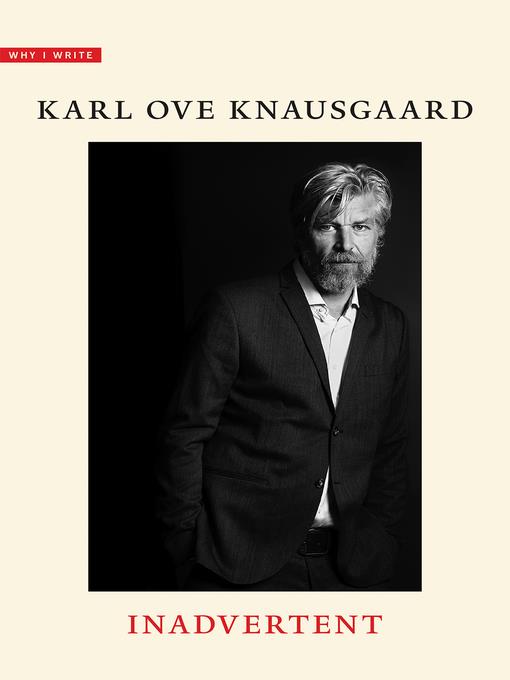
Inadvertent
Why I Write
کتاب های مرتبط
- اطلاعات
- نقد و بررسی
- دیدگاه کاربران
نقد و بررسی

July 16, 2018
Novelist Knausgaard (My Struggle: Book Six) lends his voice to the Why I Write series (following Patti Smith’s opening entry, Devotion), grappling with the theme of the series in a characteristically self-effacing and sometimes meandering ways. He begins by recounting formative literary experiences: bringing home book-filled shopping bags from the local library, and the day his mother gave him Ursula K. Le Guin’s A Wizard of Earthsea, a key moment in establishing literature as “a hiding place for me, and at the same time a place where I became visible.” From there he recalls first attempts at writing literary fiction in his late teens, first by himself and then at a creative writing course. Aspiring writers will find comfort in Knausgaard’s candor, which allows him to frankly reveal the feelings of inadequacy and fraudulence with which he has struggled. Unsurprisingly, the book’s autobiographical aspects are the most inspired; by comparison, Knausgaard’s critical comments about Tolstoy, Munch, Van Gogh, and Game of Thrones sometimes veer into the trite. Though Knausgaard offers some profound insights into writing as a craft, his signature self-awareness does not serve him well; his inability to settle on an answer to the central question renders this a scattershot work.

August 1, 2018
Brief thoughts on the purpose and meaning of writing from a writer not known for his brevity.This book, first presented as the 2017 Windham-Campbell Lecture at Yale University, has a few trademark Knausgaard (Summer, 2018, etc.) moves. It's digressive, shifting focus from the painter Edvard Munch to Ursula K. Le Guin to Ulysses, and it's shot through with a low-boil anxiety, as the author wrings his hands over his writing and how it's received by critics. Knausgaard engages in all of this meandering to explore a pair of straightforward, if somewhat contradictory, points: that literature is one of the most powerful tools we have to connect individuals to a collective humanity and that the true measure of a writer's success is an ability to ignore the herd and soldier forth individually. The success of the My Struggle series as a work of art, he explains, came from his willingness to reject artifice and simply plow ahead: "I simply wouldn't have time to think, to plan or to calculate." That's not to say he rejects artfulness, just that he privileges emotion in literature. He prefers the James Joyce of "The Dead" to the one who wrote Finnegans Wake, though emotion alone isn't enough; the hollow provocations of Game of Thrones leave him cold. Navigating this unsteady line between the head and the heart doesn't lend itself to simple answers to the lecture's prompt ("Why I Write"), but the book has a motivational quality all the same. For any writer seeking reassurance of the virtue of rewriting, his description of "eight hundred pages of beginnings" is a kind of balm. But he demands that writers never shy away from big questions: "What is the meaning of life? Where does this meaning come from? Who am I?"A light-footed meditation on the literary life that will be best appreciated by his fans.
COPYRIGHT(2018) Kirkus Reviews, ALL RIGHTS RESERVED.

























دیدگاه کاربران